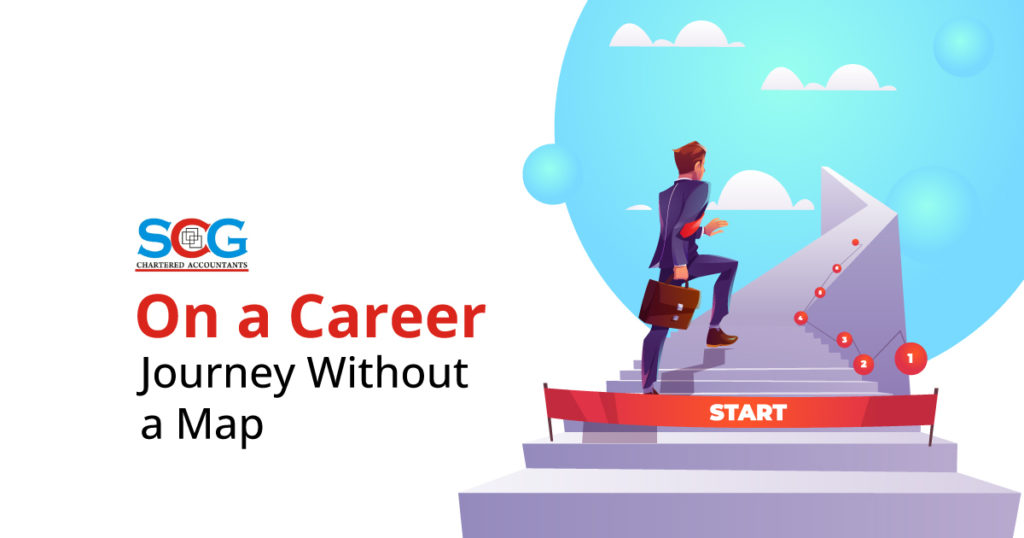This year we started career discussions in SCG Chartered Accountants. The initial focus is on people at different stages of the certification exams, but we will make it an annual practice across the firm.
We have discussed careers with 10 people at various stages of the certification exams. The areas we covered in the discussions are:
- What do you want to do?
- Do you know what you need to get there?
- What are you doing to get skills and experience?
- How does SCG help you get where you want to be?
- How do you prepare for your exams?
- What do you do with what you learn?
Findings
What do you want to be and why?
- Some want to be a Chartered Accountant, some auditors, and some were unsure. These answers describe general roles. They do not tell what specifically they want to do or achieve in those roles. They also seemed unaware of the several new roles that the evolution of accounting has created.
- Most of them do not know their purpose in the profession. Some are in because they have a business degree. Other are in for status, and some think it pays well.
It seems many people start an accounting career without a map. Any road can take them if they don’t know where they are going. They are setting themselves up for a disappointing career.
A career map must address what you do in the role you seek, skills and experiences required, opportunities, and risk. The career journey is about gaining the knowledge, skills, and experience you need to perform in your desired role. It should also address your purpose–the results you want to achieve and why.
Knowledge
The knowledge of the theory is quite shallow. Learning in our schools is predominantly by rote and most carry that habit to the workplace, so they struggle to learn for understanding.
The accounting professional must solve problems. The problems we must address in a professional setting have their nuances and underlying causes. You must first diagnose the problem and then apply knowledge and skills to solve it.
If you do not understand the theory, you cannot solve problems. That is why learning for understanding is very important. In addition, you must keep abreast of new knowledge that applies to your work.
Skills and experience
We classify the skills an accountant needs to be effective as technical and soft skills. Technical skills refer to the subject of the discipline. Knowledge of tax laws is for a tax expert, a technical skill. Soft skills, e.g., communication and relating to people, are important to being effective.
Most aspiring accountants do not know the skills they need to do the jobs they seek well, so they do not focus on developing skills, especially soft skills. They do not consciously assess and address soft skills.
You need skills that apply to the role to perform well. You must also attain the level of proficiency required to perform well. If you are not developing skills relevant to the role, you cannot perform effectively in the role.
What are you doing about developing the skills you need?
Most are doing nothing about it. They presume they are picking up skills and knowledge in their daily work. Assuming they are, are the skills relevant to where they are going? How are the skills you develop in audit relevant to a corporate accounting career? Are the skills you get in an audit role sufficient for the corporate accounting role you want?
Professional accounting bodies issue capability documents which define skills and proficiency levels for various accounting roles. They are useful guides for finding the skills and proficiency levels for the roles you seek.
The aspiring accountant should use these documents to identify and work on the skills that he needs for the future roles he seeks.
Learning for exams and what do you do with it?
A few prepare methodically, cover the syllabus, and try past questions. Most do not give themselves sufficient time to prepare for the exams. They focus on passing the exams, so they depend on exams strategies.
Most don’t apply what they learn for the exam. Learning is for exams, not for work. Unfortunately, learning is ineffective if you do not apply it.
Conclusion
My hunch is these findings apply throughout the profession. Many aspiring accountants are setting themselves up for a disappointing career. For the firm, a lack of focus on skills and learning hampers our ability to execute strategy.
To address this problem, we will counsel regularly on careers and take managerial action that involves goal setting for skills and knowledge, assessments, and feedback.
For more information and videos please follow SCG Chartered Accountants on Facebook, Twitter, Youtube and LinkedIn.

